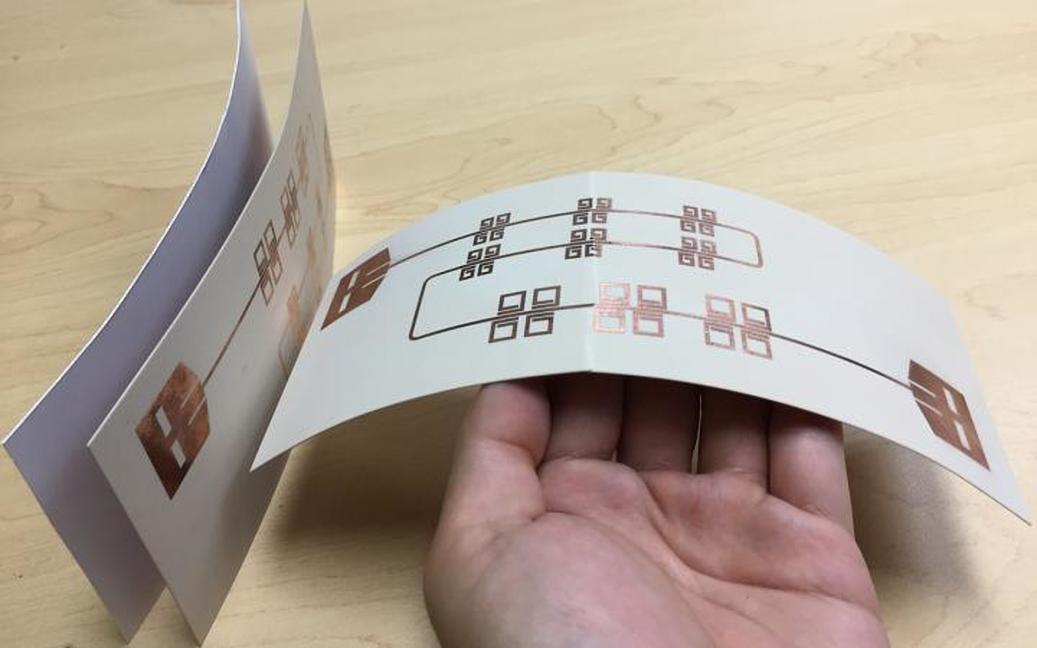Engineers from the University of California have developed new printable metal tags that could be connected to everyday objects and transform them into “smart” Internet of Things (IOT) devices. These metal tags, made from different patterns of copper foil that are printed onto thin, flexible and paper-like substrates, reflect radio signals from a WiFi router. If the user’s finger touches these WiFi signal reflecting mirrors, it disturbs the reflected WiFi signals, which are then detected by a WiFii receiver, like, say, a smartphone.
These tags can be easily attached onto plain objects that people use everyday, like water bottles, walls, or doors. These tags enable these plain objects to become smart, connected devices that can also be molded into thin keypads or smart home control panels that can be used to operate everyday devices like WiFi connected speakers, smart light and other appliances that rely on Internet of Things.
“Our vision is to expand the Internet of Things to go beyond just connecting smartphones, smartwatches and other high-end devices,” said Xinyu Zhang, senior author of the study and a professor of electrical and computer engineering at the UC San Diego Jacobs School of Engineering and member of the Center for Wireless Communications at UC San Diego. “We’re developing low-cost, battery-free, chipless, printable sensors that can include everyday objects as part of the Internet of Things.”
The research team decided to name the technology “LiveTag”. The one problem seems to be that these metal tags are designed to reflect only the specific signals within the WiFi frequency range. But by changing the type of material that the tag is made of and the pattern in which they are printed, the research team can easily redesign these metal tags to reflect either LTE, Bluetooth, or cellular signals.
The team recently presented their interesting new work at the USENIX Symposium on Networked Systems Design and Implementation Conference. These tags are quite unique, since they have no batteries, do not require any silicon chips and have no discrete, complex electronic components- therefore hardly any maintenance, like changing batteries, fixing circuits are required from the user.

